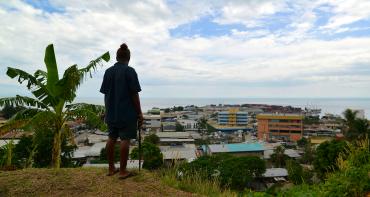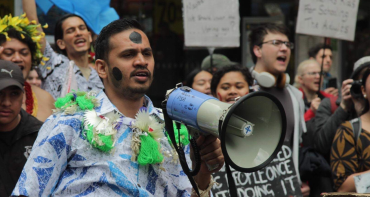Commonwealth climate finance experts will be on the ground within six months, Deputy Secretary-General Deodat Maharaj told Pacific heads of governments this week.

Commonwealth climate finance experts will be on the ground within six months, Deputy Secretary-General Deodat Maharaj told Pacific heads of governments this week.
Speaking at the annual Pacific Island Forum heads of government meeting in the Federated States of Micronesia, Mr Maharaj assured leaders that the Commonwealth is ready to help Pacific countries access funds to tackle climate change. He stated that the Climate Finance Access Hub, which was pledged at the November 2015 Commonwealth Heads of Government Meeting, will be operational within months.
“Climate change is one of the defining global challenges of our time, and an existential threat to Pacific island countries. The Pacific has been at the forefront of combating climate change, and these issues remain at the heart of the Forum’s work. The Commonwealth, mandated by our Heads of Government, is also acting on climate change,” said the Deputy Secretary-General.
With financial support from Australia and with headquarters in Mauritius, Mr Maharaj said the hub will benefit countries across the Commonwealth, but will “pay particular attention to Pacific member countries” - some of the hardest hit by climate change. In recent years the islands have faced some of the deadliest storms recorded, costing lives and reversing decades and billions of dollars’ worth of development.
Mr Maharaj also spoke about the Commonwealth’s work to boost trade, empower youth and women, strengthen democracy, manage ocean resources and boundaries and address the special challenges facing small states. These, he said, are part of a package of initiatives to help Commonwealth countries achieve the internationally agreed goals for sustainable development by 2030.
He added: “The Commonwealth is committed to supporting its members in the Pacific to implement agenda 2030 for sustainable development, where no one is left behind. To achieve this ambitious agenda, the special situation of small states has to be recognised and acted on. For us, reducing vulnerability and building resilience is critical and a prerequisite for small states achieving sustainable development.”



